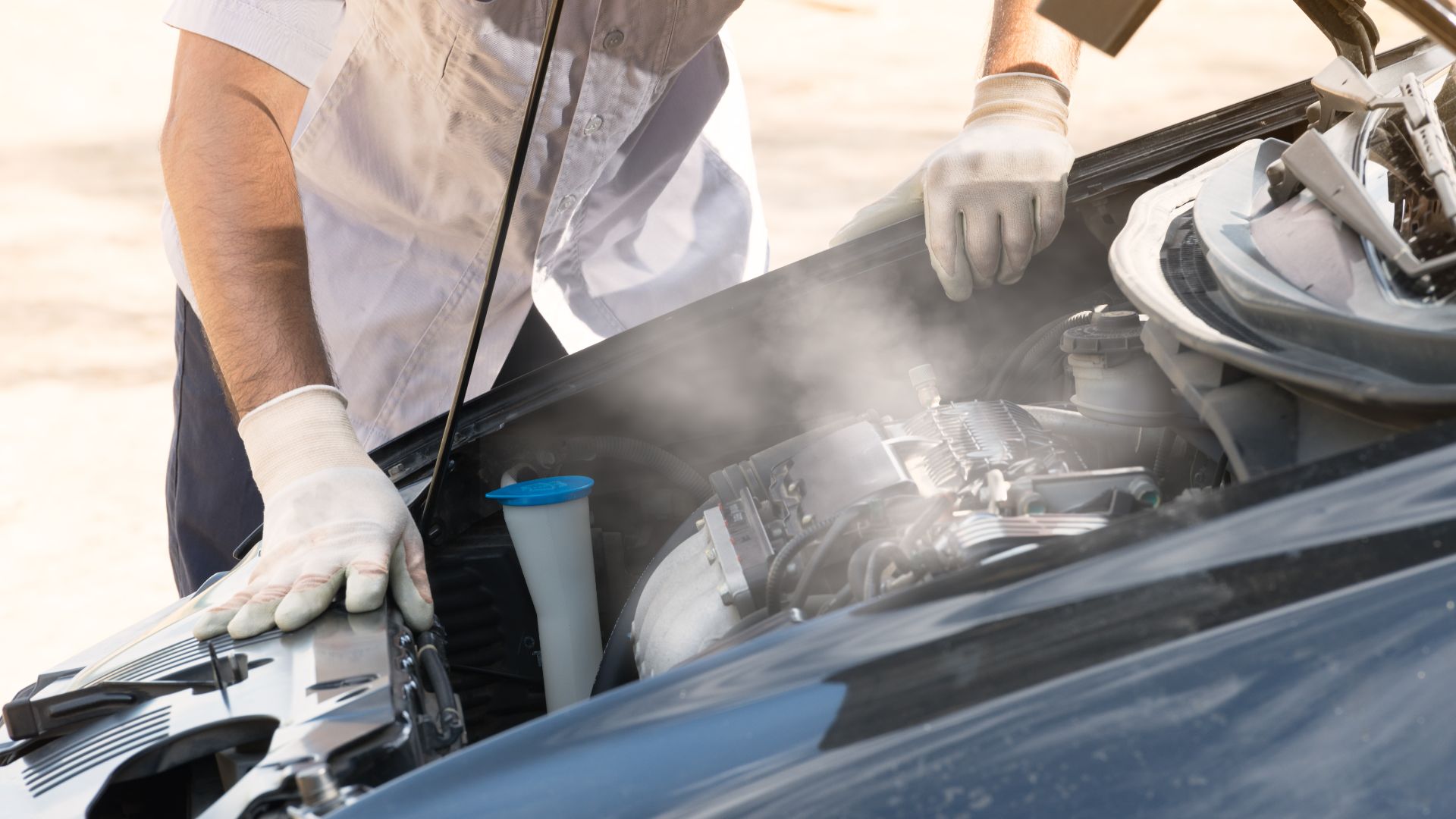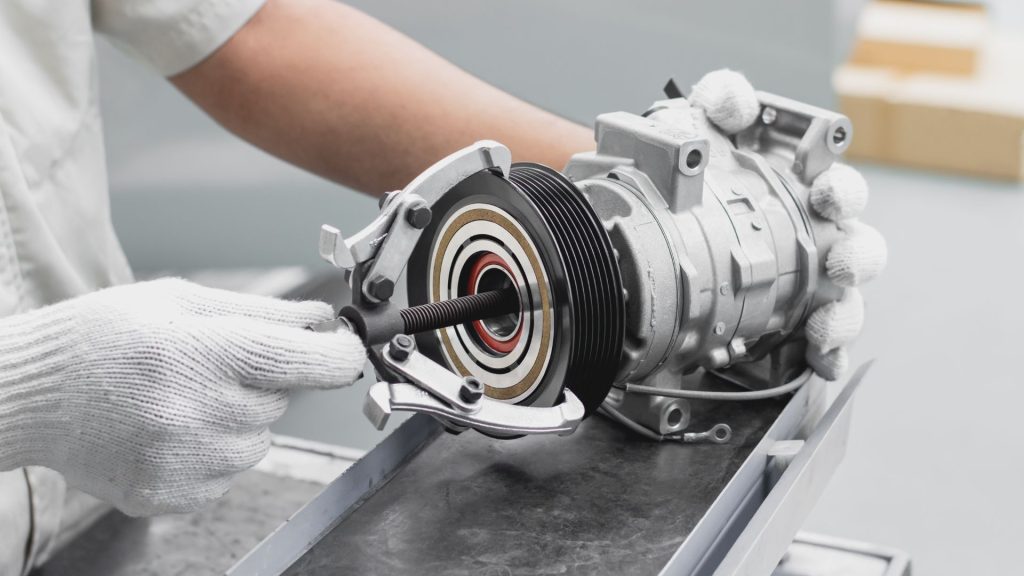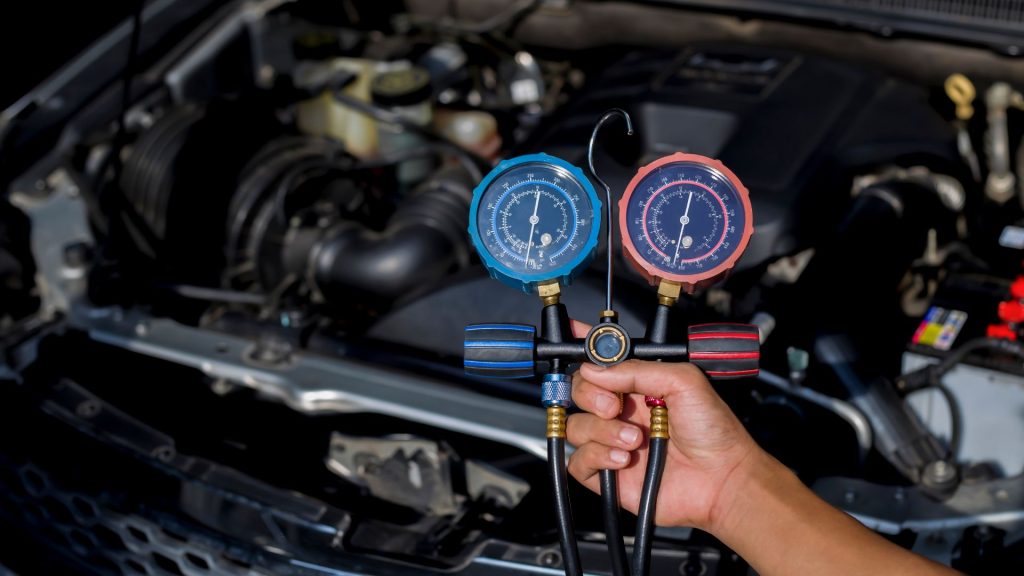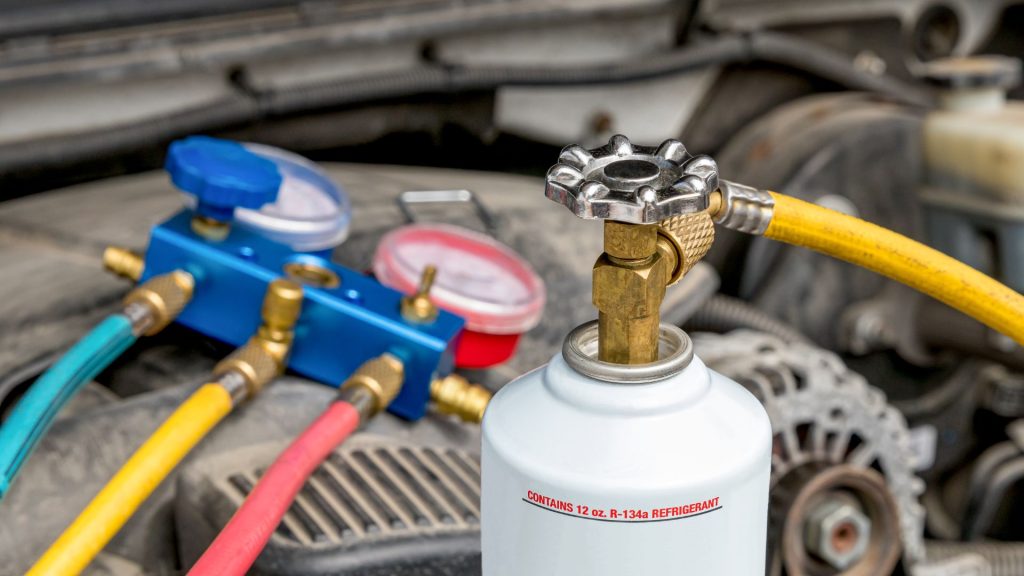Car overheats when AC is on — causes and fixes
Uncover the surprising cause of your car overheating when the AC is on.

The air conditioner can be resuscitating, especially during summer seasons or if you are traveling through a humid climate. But what happens when your car begins to overheat as soon as the AC is turned on? A lot of times, we may not associate overheating with the AC, but that is erroneous.
The air conditioning system controls the temperature inside the car by compressing the refrigerant and causing it to change state and pressure. To compress this refrigerant, more power is required from the engine and this may lead to an increase in the temperature of the engine. Perhaps you’ve experienced a situation where your car overheats when AC is on, we address the causes and solutions here.
Why do cars overheat when AC is on?
When you notice symptoms of overheating when the AC is on and then it cools down when the AC goes off, it could be as a result of one or more of the following reasons.
AC compressor overload

The major component of the car’s air conditioning system is the compressor. The compressor takes power from the output shaft of the engine and uses it to increase the pressure of the refrigerant. When the AC is on, the compressor is expected to work like an engine by rolling its cylinders to compress the refrigerant.
A malfunctioning compressor could stop working properly or cease and would also stop the accessory belt from turning, thereby putting a huge rotational load on the engine. In its effort to turn the compressor on, the engine will overheat because of the added pressure.
Faulty cooling fan
A faulty cooling fan is one of the leading causes of overheating when the AC is on. The Cooling fans the heat to be transferred between the engine coolant and the outside air, so that the airflow can speed up or slow down smoothly depending on the temperature of the engine. The cooling fan stirs at different speeds depending on the load required to cool the engine.
If the cooling fan is faulty, the coolant has to work harder to put out the excess heat from the system resulting in overheating. Problems associated with the cooling fan may be distorted blades, faulty fan switch or a defective cooling motor. A fault in any of these components can make the motor not to cool properly and trigger an overheating in the engine.
Faulty cooling system
If the cooling fans or compressor are not at fault then other components of the cooling system may be. A weak water pump may fail to pump the coolant into the necessary compartments or a leaking water pump may pour out the coolant, making it deficient for the cooling of the system.
A clogged or defective radiator may also disrupt the movement of the coolant. A worn out water pump or faulty radiator would result in a faulty cooling system and a corresponding rise in the temperature of the engine when the AC is working.
Clogged condenser fins
If the fins of the condenser are clogged as a result of particles or corrosion it could disrupt the movement of refrigerant and result in overheating.
When the AC is working, the condenser gets heated up and there is a need for the cooling system to cool it down. Failure to do this, the condenser get too hot and it would lead to an increase in the temperature of engine.
Faulty engine coolant sensor
Every engine has a coolant sensor that monitors its operating temperature and sends the information to the Electronic Control Module (ECM). If the coolant sensor is faulty, it would send a wrong temperature report to the ECM which may compromise the system and cause it to overheat when the AC is working. Although this is the least likely cause of overheating, it is not entirely impossible for it to be the reason your car is overheating when you turn on the AC.
Symptoms of bad AC compressor
As we have already mentioned, the compressor is an important component of the car’s AC. It is the power unit of the air-conditioning system that compresses the refrigerant before sending it to the condenser which converts the refrigerant from gas to a liquid state. The AC can not work properly if the compressor is not in a healthy state.
Knowing if your compressor is faulty is not rocket science. Here are some of the symptoms of a bad AC compressor.
High cabin temperature
A faulty compressor will not be able to compress the refrigerant properly and as a result, the AC will not be able to blow cold air into the cabin as it should. If you notice hot air coming from the AC vents into the cabin or that the airflow is restricted, it could be one of three reasons, it is either the refrigerant is leaking, the refrigerant is low or the compressor is faulty and needs immediate replacement.
Loud noise from the compressor
The heat, ventilation and air conditioning system of the car makes some noise when kicking on and off, but when the noise becomes louder than normal, it’s possibly one of the signs of a bad A/C compressor.
One of the vital components of the compressor is the AC clutch which is responsible for driving the belt that connects the AC compressor to the engine pulley. If the AC clutch ceases to function, it would affect the its smooth running and generate some noise.
Any break in other components of the compressor or its internal bearings could also develop loud noise in the system. This can be resolved by changing the entire AC compressor.
Moisture leaks

Refrigerant leaks are symptoms of a bad compressor. If there is a shortage of refrigerant in the system, the AC would not be able to convert the warm air into cold air and would blow the warm air into the cabin. Refrigerant leaks increases energy consumption and also the likelihood of health concerns.
Stiff compressor clutch
Not only does the compressor clutch connect the compressor to the engine pulley with a serpentine belt, it also keeps the compressor active. If the clutch is damaged or becomes stiff, the compressor will not be able to receive engine power and may cease from working correctly. Since the AC clutch is a separate unit, you may want to replace the clutch alone and save some cash or replace the whole compressor. If the A/C clutch isn’t engaging, the compressor won’t be able to do its job.
Tripping circuit breaker
When the outside condensing unit loses power or trips the circuit, it is because the compressor is overheating and drawing much power. This is a symptom of a poor compressor. Your circuit breaker trips to protect the vehicle from potential fire outbreak. If this happens, do not try to put the circuit breaker back on. Instead, you should seek a qualified technician to replace your compressor.
Broken suction lines
A damaged AC compressor can lead to blockage of the refrigerant line which could result in warm air flow from the AC vents. If your refrigerant line is blocked, you should consider taking your car to a qualified mechanic for unblocking or full replacement.
Damaged wire
Electrical problems in the AC unit could be caused by damaged compressor wires. These electrical problems can make the compressor to receive too little or too much voltage which is a huge safety concern for your vehicle as it can lead to electrical fire outbreak. If you notice damaged compressor wires in your vehicle, you should replace the compressor as soon as possible.
What to do if your car overheats when AC is on
Do not panic if your car is overheating. Carefully turn off the AC, pull over and commence checks on the vehicle. Below are some of the things to do if you notice that your vehicle is overheating when the AC is on.
Check the cooling fan
You should first check if the fan motor, the fan relay and the auxiliary fan (if installed) are in good condition. If they are not, they could be the cause of the overheating and you should all your mechanic. If they are in good condition, proceed to other parts of the cooling system.
Check the cooling system
As a rule of thumb, your radiator should be cleaned regularly to get rid of particles that could block or limit airflow. It should also be checked with the aid of a radiator testing kit for leakages and an air pressure gauge should be installed on one of the radiator ends to check the airflow. The water pump should be checked for erosion on the internal fins. Worn out water pumps should be replaced immediately.
Check refrigerant

Not every refrigerant may be compatible with your AC. If you notice overheating after adding freon gas to your compressor, it could be that the type of this gas used is not compatible with your compressor type or model. Ensure that the recommended gas is used on your compressor.
Service air conditioner
Since faulty ACs can cause health damages, it is important to service your air conditioner and the compressor regularly. A timely service rule could save your engine from overheating when the AC is on.
Flush and refill the coolant
Your vehicle coolant system should be flushed and refilled with the recommended type every 2 years or 40,000 km.
When adding water to the radiator, always ensure that you use distilled water instead of tap water to prevent corrosive substances like salt, rust and dirt from getting into the system.
Parts Replacement
No part of the cooling system or compressor should be ignored. If you notice any damaged or worn out part, ensure to fix them immediately to avoid further damage, overheating or fire outbreak. If your car overheats when ac is on, replacing or fixing of the vital components could save you from losing your engine due to overheating.
Our take
Overtaking may be caused by several factors, one of which is the air conditioning system. If it is not the direct cause, it can further add more load to the system, thereby intensifying the heat.
When the air conditioning system overheats, it would trip the circuit breaker and shut off the system. Do not simply turn the circuit breaker back on, instead, turn off the AC, pull over, inspect your car components and seek help from a qualified mechanic.
Can your AC make your car overheat?
Cars can overheat for several reasons, but If you receive temperature warnings on your gauge or notice some symptoms of overhearting when you turn on the AC, then it is possible that your AC is a contributing factor to your car overheating.u003cbru003eu003cbru003eThis is because the AC compressor takes power from the engine shaft which means added pressure on the engine when the ac is working. If the cooling system is unable to remove the excess heat and maintain optimal operating temperature, your car will overheat when the AC is turned on.
Why does my temperature gauge go up when my AC is on?
The Temperature gauge going up may not entirely be due to the AC. It could be as a result of a faulty sensor or malfunctioning coolant. However, if the gauge goes up everytime you put on the AC, you may have to get your AC and other components of the cooling system serviced.
What are the symptoms of a bad AC compressor?
The symptoms of a bad AC compressor include: high cabin temperature, loud noise from the compressor, stiff compressor clutch, moisture leaks, tripping circuit breaker. u003cbru003eu003cbru003eOther symptoms are damaged wires, broken suction lines, temperature gauge going up, ticking sounds coming from the engine compartment, sluggish acceleration, and strange odor from the cabin.
Should I turn off the AC if my car is overheating?
It is absolutely necessary to turn off your AC when you suspect that your system is overheating to lower the stress on the engine. Not doing so can cause engine to overheat quickly and lead to more disastrous damages.